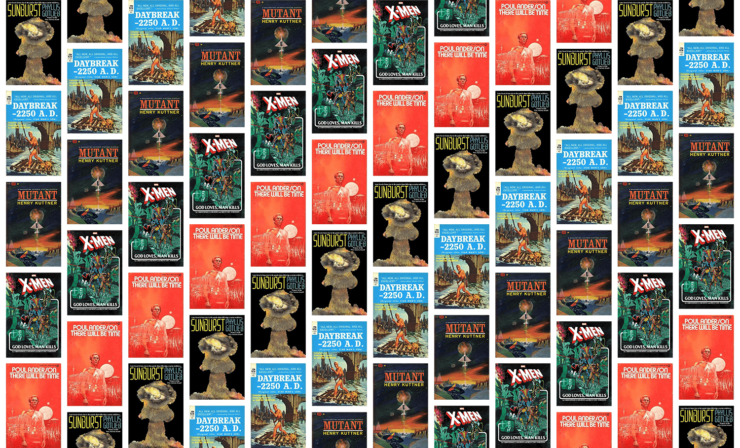Mutation is an omnipresent biological fact. Every living being with genes is vulnerable to mutations—including us humans. Too bad that we’re so bad at biological replication-error correction. The only bright side to this is that most mutations have very minor effects and most of those don’t hurt us at all.
But of course, that’s not the sort of thing that SF authors need to gin up a really good plot. Authors want drama, and dramatic mutations.
Stories about mutants became popular around the start of the atomic age. Sometimes authors took a dim view of mutations. Either the mutants were ill, ugly, and flawed…or if they had somehow been endowed with superpowers, they couldn’t be trusted to use those for good. Other authors took a somewhat different view, insisting that difference need not imply hostility. Mutations could be benign; if they gave the mutant superpowers, those powers could be used to help others.
Mutants have featured in any number of classic SF stories. Here are a few of the older ones.
Daybreak — 2250 A.D. by Andre Norton (1952)
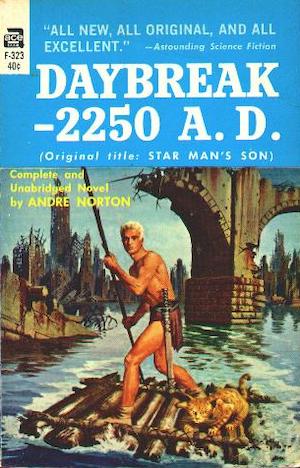
Centuries after the atomic war erased civilization, the sequestered city of Eyrie takes a dim view of outsiders. Fors of the Puma clan is not merely the son of a foreigner—his silver hair marks him as a despised mutant. The Eyrie was gracious enough not to expel him, even to raise him. But Fors will never be permitted to be a Star Man, an adult male with full rights. At least, not unless he takes dramatic action.
Accompanied by his semi-telepathic cat Lura, Fors embarks on an unsanctioned mission of exploration. The likely outcome: death in a deadly post-atomic world. The next-most-likely outcome: exile for violating Eyrie law. However, if the boy is smart, and very lucky, he might just find a treasure with which to earn his place as a man amongst his mother’s people.
Mutant by Henry Kuttner and C. L. Moore (1953)
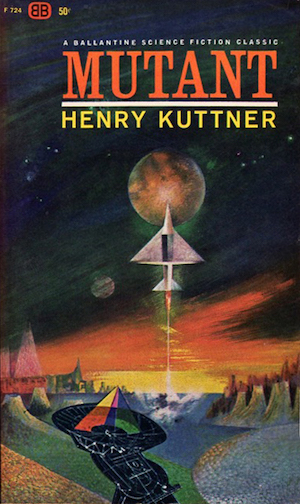
The Blowup turned cities into glowing rubble and left traumatized survivors in its wake. Nevertheless, humanity might eventually have relegated the Blowup to the forgotten past, save for one lingering after-effect: radiation-induced mutation. The mutation that created the so-called Baldies.
Baldies take their name from what can be seen of their differences: they are as hairless as an egg. It is the unseen element that bothers their baseline human cousins: Baldies are telepathic. Cue instant racist loathing and incessant persecution of Baldies by non-mutants. Peaceful coexistence seems unlikely…unless the Baldies can find some way to share their gifts with others.
Sunburst by Phyllis Gotlieb (1964)

To the rest of the world, fusion power is a blessing, the panacea that supplied all of humanity’s energy needs. To Sorrel Park, the last community on Earth still using coal power, fusion power is a menace. It is an atomic mishap waiting to happen.
Sorrel Park still remembers the long-ago fusion accident that exiled it from the rest of the world. Sorrel Park was sealed off and placed under a press ban, lest public faith in fusion be shaken.
Another consequence: a crop of mutant juvenile delinquents known as Dumplings. They ran amok once and have since been imprisoned, lest they do it again.
“Shandy” Johnson is no Dumpling—in fact she appears to be the exact opposite. She is so psionically inert that the Dumplings’ powers cannot affect her. This immunity will prove invaluable when the Dumplings escape their prison and target America’s national computer.
There Will Be Time by Poul Anderson (1972)
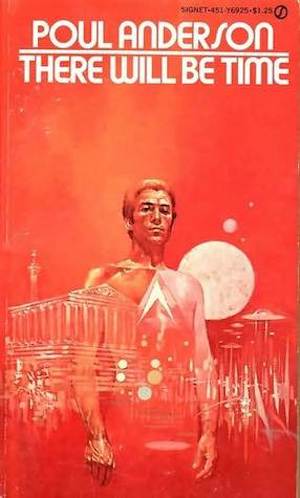
Jack Havig, born in 1933, is a mutant. Not due to nuclear war; he is a random genetic accident. This accident has given him a very odd power; Jack can travel through time merely by willing it so. What Jack cannot do is alter history. Too bad for 20th century civilization, which is fated to end in the Judgement War.
Centuries after the Judgment War, the Polynesian Maurai have come to power. Theirs is a human golden age. They are opposed by another mutant time traveler, a certain Caleb Wallis, who hails from the 19th century US and is a vicious bigot. He believes that a world ruled by Polynesians is an abomination and must be destroyed. He has a power that the Maurai Federation cannot match; he has racist allies. Only time traveler Jack Having can oppose him…if he can exploit Wallis’ blind spots and a few quirks of history.
X‑Men: God Loves, Man Kills by Chris Claremont, with illustrations by Brent Eric Anderson (1982)
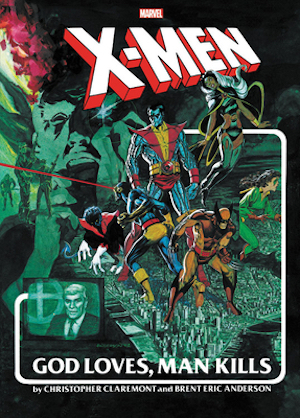
Determined to prove to baseline humans that mutants and non-mutants can coexist, Professor Charles Xavier recruited mutant children and transformed them into his private superpowered teen paramilitary: the X-Men. Not only have the X-Men failed to convince society that mutants are not dangerous, but frequent clashes between the X-Men and their evil mutant foes (clashes that result in a LOT of collateral damage) have inflamed anti-mutant paranoia.
Reverend Stryker isn’t just an anti-mutant extremist. He is an anti-mutant extremist with resources and a plan. Not content to send his fanatics out to murder individual mutants, the Reverend has an audacious scheme to eliminate the mutant threat forever. To accomplish that, however, Stryker must commandeer one crucial component: Professor Charles Xavier himself.
***
Mutants of various kinds are common in speculative fiction. Many of you may have your own favourites, works that should have been mentioned above. Feel free to point out my egregious omissions in the comments section.
In the words of fanfiction author Musty181, prolific book reviewer and perennial Darwin Award nominee James Davis Nicoll “looks like a default mii with glasses.” His work has appeared in Publishers Weekly and Romantic Times as well as on his own websites, James Nicoll Reviews (where he is assisted by editor Karen Lofstrom and web person Adrienne L. Travis) and the 2021 and 2022 Aurora Award finalist Young People Read Old SFF (where he is assisted by web person Adrienne L. Travis). He is a four-time finalist for the Best Fan Writer Hugo Award, and is surprisingly flammable.










